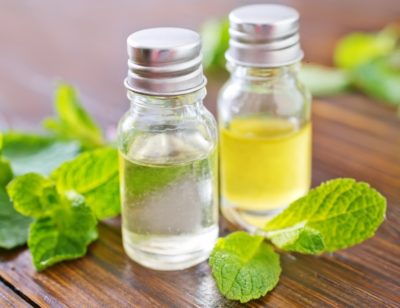
Image source: KSDK
Stockpiling food and fuel may not be enough to stay healthy during disasters, natural or man-made. Illnesses have a way of visiting even the healthiest of people when we are most inconvenienced. When you are in a situation with no access to medical care, a careful selection of essential oils can be your best friend. Used for thousands of years as medicines, it is not difficult to see how essential oils can be viewed as beneficial gifts from nature.
One of the greatest advantages of essential oils is that they are multipurpose. Unlike most of the modern drugs that have specific uses, a single essential oil can work in many different ways to relieve several complaints – and typically without side effects. Another benefit is that many of them work on the body and the mind at the same time. Take lavender oil, for example. It can act on the mind, relieving stress and jolting you out of a low mood. It relaxes body and mind, and can lull you to sweet sleep. It also has anti-inflammatory properties that work against skin allergies and burns.
As you add essential oils to your cache of emergency provisions. you need to learn about the different uses of each one. This knowledge will help you make the best use of your stock. If you’re a novice, it may be a good idea to start using these oils to treat everyday problems. That way you can get the hang of using them. But be warned: You will be hooked.
Here’s a short list of the essential oils that should make your list, along with some of their important uses.
1. Lavender
The multifaceted lavender oil is always on the top of the list. If you could have only a single essential oil with you, this should be it.
The Hidden Secrets Of Making Herbal Medicines…Right At Your Fingertips!
If you’re stung by a bee, apply a drop of lavender oil at the site to reduce pain and swelling. For minor burns and scalding you can apply three to four drops; in many cases, you will not even see redness on the skin afterwards. Eczema sufferers get relief with the application of a few drops of lavender oil in carrier oils such as coconut oil.
To derive its calming effect, you can rub a few drops on your wrists, temples and feet, or it can be used in a diffuser. Dabbing it on your pillow will ensure restful sleep. If you have motion sickness, a tiny drop on the tip of your tongue or behind your ears will clam the sensation.
Lavender oil also has antibiotic properties. When applied on a cut, it can stem bleeding and prevent infections. A tissue dampened with this oil can be kept under your nose to help stop nosebleeds.
2. Roman Chamomile
Chamomile used to be an essential item in every household with babies and young children. It has been traditionally used for a number of childhood ailments including colic in infants. The oil should be diluted for internal use in children, but it can be used externally for earaches, stomachaches and fevers. Again, a diffuser can also be used.
A drop of chamomile with tea can be taken for a week to get rid of worms. Massaging a few drops on the stomach and the reflex points on the feet also may have a similar effect. The anti-inflammatory and anti-spasmodic property of this oil can be utilized to get relief from sciatica, hemorrhoids, muscle spasms, bruises and rashes.
3. Peppermint
 Peppermint’s use as a digestive aid and anti-flatulent is age old. To benefit from the carminative property of peppermint oil, a few drops of it can be added to tea when you cannot get ahold of fresh peppermint leaves. It also relieves nausea and motion sickness when inhaled.
Peppermint’s use as a digestive aid and anti-flatulent is age old. To benefit from the carminative property of peppermint oil, a few drops of it can be added to tea when you cannot get ahold of fresh peppermint leaves. It also relieves nausea and motion sickness when inhaled.
Peppermint is a respiratory aid, helping relive congestive conditions like sinusitis, bronchitis and asthma. Add a few drops to boiling water and inhale the fumes. Rubbing a little on the chest will relieve cough and cold. Apply a few drops on the forehead for relief from headache.
4. Clove
Clove oil is a common ingredient in mouthwashes and toothpastes. A crushed clove pressed onto an aching tooth can provide instant relief because of its numbing effect. But its use is not restricted to dental hygiene and cavities.
It is a powerful anti-inflammatory agent that can be used to relieve muscle pains, swelling, respiratory disorders and tension headaches. Clove oil is effective against fungal infections and scabies, too. It is a strong oil that can burn the skin; hence testing on a small area and dilution with a carrier oil before application are essential. Gargling with salt water containing a few drops of clove oil can soothe a sore throat.
5. Lemon Grass
Lemon grass oil is a strong smelling essential oil that is known to repel head lice in people and fleas in pets. It also has analgesic and anti-inflammatory properties that help people suffering from arthritic pain.
Lemon grass is an essential ingredient in many cuisines, which is ample evidence of its beneficial effect on the digestive system. It increases the assimilation of nutrients and reduces gas. It acts as a diuretic, too, helping to eliminate toxins from the body. Use it in a diffuser to bring down high fever.
In recent studies, this oil has been found to be the most effective against MRSA bacteria among 91 essential oils tested. Use it to treat athlete’s foot and ringworm, too.
6. Oregano
Oregano is an essential oil that can be very handy in preventing and treating food poisoning, which can be a big problem in emergency situations. If you’re ever in doubt about the purity of the water or food that you have consumed, take a few drops of oregano oil in a cup of warm tea. Its antimicrobial properties can help take care of stomach bugs.
Oregano stimulates the flow of bile, thus helping digestion. Another important benefit of this oil is that it can regulate menstrual flow and relieve cramps and symptoms associated with menopause.
7. Tea Tree
Commonly known as tea tree oil, melaleuca essential oil needs no introduction. It has strong antibacterial and antifungal properties that help relieve acne, boils, cold sores, athlete’s foot and scabies. This oil is strictly for external application.
New “Survival Herb Bank” Gives You Access to God’s Amazing Medicine Chest
This is the oil to turn to for relief from persistent itching, scaling, rashes and other allergic reactions of the skin. People suffering from eczema find relief when a few drops of tea tree oil is added to coconut oil and massaged into the skin to keep it soft and hydrated.
8. Helichrysum
Helichrysum oil is an excellent mucolytic agent and expectorant. Increased mucus production in the respiratory tract helps wash down microbes trying to get a foothold. It also relieves congestion by making it easy to cough up phlegm. A few drops of the oil can be rubbed on the chest, used in a diffuser, or placed on a pillow.
Helichrysum oil is a diuretic that helps urine production and elimination of toxins from the body. It also increases bile production. It can be applied to cuts and open sores to prevent bacterial infections.
9. Calendula

Image source: schoolgardens
Calendula is a staple of the homeopathic system of medicine. Extracted from Calendula officinalis, commonly known as pot marigold, this essential oil is safe to use even on baby skin. In fact, it is excellent for soothing diaper rash. It is considered mild enough to be used for treating eye infections such as conjunctivitis and eye sores.
When applied to small nicks and cuts, as are common during shaving, it promotes healing without scars. The essential oil of calendula increases blood flow to an injured area and makes way for natural tissue repair and regeneration.
It also relieves varicose veins, hemorrhoids, muscle spasms and menstrual cramps when applied topically.
10. Myrrh
Myrrh always has been highly valued in Middle Eastern cultures. It is made from a gum obtained from Commiphora myrrha, a tree native to this region.
Myrrh oil is a digestive aid that is widely used to treat dyspepsia, diarrhea, indigestion and flatulence. It can improve dental hygiene when used regularly in gargle water. It helps control gingivitis and heals mouth ulcers. It also can relieve a sore throat and congestion in the respiratory tract.
11. Lemon
Lemon oil is highly refreshing and can reduce exhaustion and fatigue when used in a diffuser. It can be safely used internally to improve digestion and relieve constipation. Alternatively, adding one drop of lemon oil to 10 drops of coconut oil and lightly rubbing it clockwise on the abdomen can help improve bowel movements. It can be used topically to treat dysentery, too.
Use lemon oil as a disinfectant in bath water and to wash clothes and to clean surfaces. The antimicrobial action of this oil comes in handy during the flu season.
All essential oils should be obtained from reputable companies who whenever possible use organically grown herbs and cold pressing to obtain the oil. Heating can alter the structure of many essential oil and reduce their effectiveness.
What would you add to the list? Share your suggestions in the section below:
Harness The Power Of Nature’s Most Remarkable Healer: Vinegar. Read More Here.
 Off The Grid News Better Ideas For Off The Grid Living
Off The Grid News Better Ideas For Off The Grid Living



